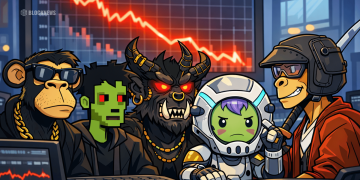- Solana meme coin presales have raised $150 million from users sending funds to strangers, despite lack of accountability and scam risks.
- The problem continues unabated, with $150 million sent just in the last week and several presales revealed as scams.
- The trend raises concerns of legal issues, tax problems, and shady backgrounds of some developers, though the Solana community is pushing back.
Some members of the Solana community have begun pushing back against meme coin presales, an increasingly common dubious practice that has seen crypto traders blindly send tens of millions of dollars to strangers. This comes amid the multi-billion dollar explosions of several Solana-based meme coins in the last three months.
THE PROBLEM WITH MEME COIN PRESALES
Despite the lack of accountability, crypto users have thrown an astounding $150 million at meme coin presales in just the last week, according to on-chain sleuth ZachXBT. Since March 12, Solana users have sent 796,000 SOL, worth around $149.2 million, to just 33 meme coin presale addresses advertised on Twitter. Several such presales have turned out to be full-on scams.
NEGATIVE REACTIONS
In response to the findings, Solana co-founder Anatoly Yakovenko bluntly chided Solana DeFi users. Others warned that the phenomenon could create lasting negative effects beyond those involved, with potential legal ramifications from the SEC. Fears have also cropped up about other legal uncertainties around numerous meme coin presales.
ONGOING ISSUES
But the trend continues unabated. After posting analysis on the subject, ZachXBT had to update his findings just hours later: DeFi users had thrown another $27 million at Solana presales that he’d missed. Questions have also arisen when developers move presale funds to exchanges like Binance. This likely exposes projects to tax nightmares and backgrounds of some developers.
CONCLUSION
In spite of potential red flags, the trend of meme coin presales continues unchanged on Solana. With congestion and malicious actors also challenging the network, significant changes may be needed to deal with the demand.














